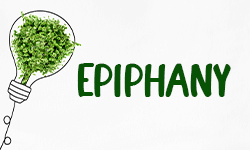
Word definitions are a widespread phenomenon in the English language that promote cohesion and comprehension. They serve as bridges between many cultures, languages, and perspectives. But let’s be honest: Sometimes, we’re not completely certain what they really mean. It is, therefore, crucial to establish the correct meaning so that we can express ourselves properly. This article thoroughly examines the etymology, definition, and proper usage of the term “epiphany.”
Definition of “epiphany”
An epiphany is often characterized by a sudden and profound understanding or insight, frequently brought about by seemingly ordinary events or experiences. It typically feels like a light bulb turning on in your mind, making everything make sense in a specific situation. This term is widely used in literature, psychology, and everyday conversation to describe moments of significant personal revelation or enlightenment.
Use of “epiphany” in a sentence
In the English language, “epiphany” functions as a noun and refers to a moment of sudden and clear understanding, often happening during everyday activities.
How to spell “epiphany” correctly
“Epiphany” has its roots in religious and ancient languages, evolving in meaning over time to its current usage. It derives from the Ancient Greek word “epiphaneia,” which means “appearance” or “manifestation.” The term was then adopted into Latin as “epiphania,” maintaining its meaning of “manifestation.” Its Greek origin can be divided into two root words:
- “epi-,” meaning “upon” or “on top of”
- “-phaino,” meaning “to show” or “to appear”
From there on, “epiphania” entered Old French as “epiphanie,” before making its way into Middle English, where it was primarily used with religious connotations. Originally, “epiphany” referred to the Christian feast day on January 6th when Christians celebrate the manifestation of Christ to the Gentiles, highlighting the idea of a divine or significant revelation.
Correct spelling
epiphany
Wrong spelling
epiphanny
epifanny
Synonyms for “epiphany”
If you are unsure about the correct spelling of “epiphany” in sentences, it may be effective to use synonyms for it. At the same time, you can avoid repetition and redundancy in your academic work. The table presented below shows alternatives for “epiphany” and corresponding examples of their appropriate usage in sentences.
| Synonyms | Examples |
| Revelation | She had an epiphany about the importance of friendship during her holiday. |
| She had a revelation about the importance of friendship during her holiday. | |
| Realization | During the meeting, she had a sudden epiphany about the project's direction. |
| During the meeting, she had a sudden realization about the project's direction. | |
| Vision | After meditating for hours, he had an epiphany about his future career path. |
| After meditating for hours, he had a vision about his future career path. |
FAQs
An epiphany is a sudden, profound realization or insight.
- She had an epiphany about her true calling while hiking alone in the mountains.
- During a late-night talk, he had an epiphany about the importance of communication in relationships.
January 6th is called Epiphany because it commemorates the visit of the Magi to the baby Jesus, symbolizing the revelation of Christ to the Gentiles.
Synonyms for epiphany are:
- Insight
- Illumination
- Revelation
- Realization
numerous advantages for Canadian students:
- ✓ 3D live preview of your configuration
- ✓ Free express delivery for every order
- ✓ High-quality bindings with individual embossing

